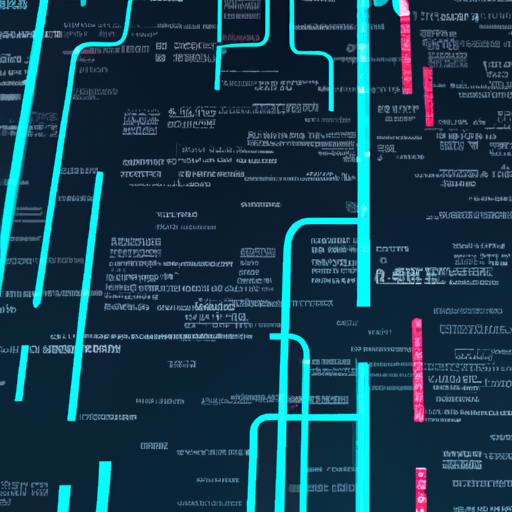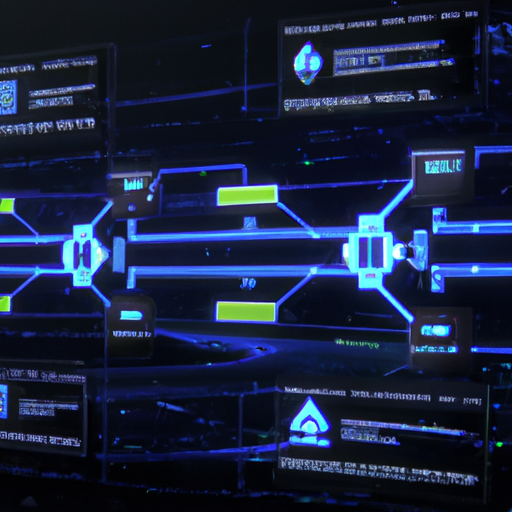-
Table of Contents
- Introduction
- Ethical Engagements in the Web3 Wave: Sociocultural Shifts and Their Implications
- Identity Independence in the Web3 Wave: The Sociocultural Shifts Redefining Our World
- Collaborative Creation in the Web3 Wave: How Sociocultural Shifts are Changing the Cultural Code
- The Role of Economic Equity in the Web3 Wave: A New Sociocultural Shift
- Understanding the Web3 Wave: Sociocultural Shifts and Their Impact on Social Fabric
- Q&A
- Conclusion
“Web3 Wave: Navigating the Future of Sociocultural Evolution in the Digital Realm.”
Introduction
Web3 Wave: Sociocultural Shifts Unfolded is a comprehensive exploration of the transformative impact of Web3, the third generation of internet services, on society and culture. It delves into the profound changes brought about by this new wave of technology, including decentralization, blockchain technology, and cryptocurrency. The introduction of Web3 has not only revolutionized the digital landscape but also significantly altered sociocultural dynamics, leading to shifts in power structures, economic models, and social interactions. This topic provides an in-depth understanding of these changes, offering a glimpse into the future of the internet and its potential societal implications.
Ethical Engagements in the Web3 Wave: Sociocultural Shifts and Their Implications
The advent of Web3, the third generation of internet services, is not just a technological revolution but also a sociocultural shift. This new wave of the internet, characterized by decentralized networks and blockchain technology, is redefining the way we interact, transact, and engage with the digital world. As we ride this Web3 Wave, it is crucial to understand the Ethical Engagements and the Sociocultural Shifts it brings along and their implications.
Web3 is a decentralized version of the internet that gives users control over their data, unlike the current Web2, where tech giants have the upper hand. This shift from a centralized to a decentralized model is a significant sociocultural change. It empowers individuals, promotes transparency, and fosters a sense of community. However, this decentralization also brings forth ethical questions about data privacy, security, and digital identity.
In the Web3 world, users own their data. They have the power to decide who can access their information and how it can be used. This shift towards data sovereignty is a significant step towards ensuring privacy. However, it also raises ethical questions about the responsibility that comes with this power. Users need to be aware of the implications of sharing their data and the potential risks associated with it.
Moreover, the decentralized nature of Web3 also means that there is no central authority to oversee transactions or regulate content. This lack of regulation can lead to ethical dilemmas. For instance, it could potentially enable illegal activities or the spread of harmful content. Therefore, it is crucial to establish ethical guidelines and norms for behavior in the Web3 space.
Another significant sociocultural shift brought about by Web3 is the concept of digital identity. In the Web3 world, users can have a self-sovereign identity, a digital identity that they control. This concept is revolutionary as it allows individuals to establish their identity online without relying on a central authority. However, it also raises ethical questions about identity verification and fraud prevention.
Furthermore, the Web3 Wave is also transforming the economic landscape. It is enabling new business models and economic systems, such as decentralized finance (DeFi) and non-fungible tokens (NFTs). These innovations are democratizing access to financial services and creating new opportunities for wealth creation. However, they also bring ethical considerations about financial inclusion, wealth disparity, and economic stability.
In conclusion, the Web3 Wave is a significant sociocultural shift that is redefining our digital interactions. It brings numerous benefits, such as data sovereignty, transparency, and economic opportunities. However, it also raises ethical questions that need to be addressed. As we navigate this new digital landscape, it is crucial to engage in ethical discussions and establish norms that ensure a safe, inclusive, and equitable Web3 world. The Web3 Wave is not just about technological innovation; it is also about creating a digital society that respects individual rights, promotes ethical behavior, and fosters a sense of community.
Identity Independence in the Web3 Wave: The Sociocultural Shifts Redefining Our World
The advent of the Web3 Wave is not just a technological revolution; it is a sociocultural shift that is redefining our world. This new era of the internet, characterized by decentralized networks and blockchain technology, is transforming the way we interact, transact, and identify ourselves online. One of the most profound changes brought about by the Web3 Wave is the concept of Identity Independence, a paradigm shift that is reshaping our digital lives.
Identity Independence in the Web3 Wave is a departure from the traditional model of digital identity, where our online personas are controlled by centralized entities like social media platforms and email providers. In the Web2 era, these entities act as gatekeepers, holding the keys to our digital identities. They have the power to censor our voices, track our activities, and even revoke our access to their platforms. This centralized model of digital identity has been criticized for its lack of privacy, security, and freedom.
In contrast, the Web3 Wave empowers individuals with control over their digital identities. Through blockchain technology, we can create self-sovereign identities that are independent of any centralized authority. These identities are cryptographically secure, privacy-preserving, and resistant to censorship. They allow us to own and control our personal data, giving us the freedom to express ourselves and interact with the digital world on our own terms.
This shift towards Identity Independence is not just a technological change; it is a sociocultural shift that is redefining our relationship with the digital world. It is changing the way we think about privacy, security, and freedom in the digital age. It is challenging the power dynamics between individuals and centralized entities, giving us the tools to reclaim our digital sovereignty.
Moreover, Identity Independence in the Web3 Wave is fostering a new culture of digital citizenship. As we gain control over our digital identities, we become active participants in the digital world, rather than passive consumers. We can engage in peer-to-peer transactions, participate in decentralized governance, and contribute to the development of the digital commons. This culture of digital citizenship is fostering a sense of community, collaboration, and shared responsibility in the digital world.
However, the shift towards Identity Independence is not without its challenges. It requires a new understanding of digital literacy, as individuals must learn to manage their digital identities and navigate the complexities of blockchain technology. It also raises new ethical and legal questions about the rights and responsibilities of digital citizens. These challenges must be addressed as we navigate the transition to the Web3 Wave.
In conclusion, the Web3 Wave is ushering in a new era of Identity Independence, transforming our relationship with the digital world. This sociocultural shift is redefining our notions of privacy, security, and freedom in the digital age. It is challenging the power dynamics of the Web2 era and fostering a new culture of digital citizenship. As we ride the Web3 Wave, we must embrace these changes and navigate the challenges ahead, for they hold the promise of a more decentralized, democratic, and empowering digital future.
Collaborative Creation in the Web3 Wave: How Sociocultural Shifts are Changing the Cultural Code

The Web3 Wave, a term coined to describe the third generation of internet services, is not just a technological revolution. It is a sociocultural shift that is changing the Cultural Code and the way we interact, create, and share on the internet. This shift is characterized by a move towards a more decentralized, user-centric model of the internet, where users have more control over their data and can actively participate in the creation and distribution of content.
One of the most significant changes brought about by the Web3 Wave is the concept of Collaborative Creation. In the traditional model of the internet, content creation was largely a one-way street. Creators produced content, and users consumed it. However, with the advent of Web3 technologies, this dynamic is changing. Users are no longer passive consumers of content; they are active participants in its creation.
This shift towards Collaborative Creation is facilitated by blockchain technology, the backbone of the Web3 Wave. Blockchain allows for the creation of decentralized applications (dApps) that operate on a peer-to-peer network, rather than being controlled by a single entity. This means that users can contribute to the development and operation of these applications, creating a more democratic and inclusive internet.
Moreover, the Web3 Wave is also changing the way we think about ownership and value. In the traditional internet model, value was largely extracted by large corporations who controlled the platforms on which content was created and shared. However, in the Web3 model, value is distributed among the users who contribute to the creation and distribution of content. This is made possible by the use of cryptocurrencies and tokens, which can be used to reward users for their contributions.
This shift towards a more decentralized, collaborative model of the internet is also having profound sociocultural implications. It is changing the way we interact with each other online, fostering a more participatory culture where everyone has a voice. It is also challenging traditional power structures, as it gives users more control over their data and the content they create.
However, like any technological revolution, the Web3 Wave also comes with its challenges. One of the main concerns is the digital divide. As the internet becomes more complex and requires more technical knowledge to navigate, there is a risk that those who lack the necessary skills or resources could be left behind. Moreover, there are also concerns about privacy and security, as the decentralized nature of the Web3 Wave makes it more difficult to regulate and control.
Despite these challenges, the Web3 Wave represents a significant step forward in the evolution of the internet. It offers a vision of a more democratic, inclusive, and participatory internet, where users are not just consumers, but active participants in the creation and distribution of content. As we continue to navigate this new digital landscape, it is crucial that we consider not just the technological implications, but also the Sociocultural Shifts that are unfolding. The Web3 Wave is not just changing the way we use the internet; it is changing the Cultural Code of our digital society.
The Role of Economic Equity in the Web3 Wave: A New Sociocultural Shift
The Web3 Wave, a term coined to describe the third generation of internet services, is not just a technological revolution. It is a sociocultural shift that is redefining the way we interact, transact, and even perceive the concept of ownership. At the heart of this transformation is the principle of Economic Equity, a concept that is fundamentally reshaping our digital landscape.
Economic Equity in the context of the Web3 Wave refers to the democratization of the internet, where users are not just passive consumers but active participants who have a stake in the digital platforms they use. This is a stark departure from the Web2 model, where a handful of tech giants monopolize the digital economy, reaping the lion’s share of profits while users, the real value creators, are left with little to no compensation for their contributions.
The Web3 Wave, powered by blockchain technology, is challenging this status quo. It is creating a decentralized internet where users have control over their data and can earn from their online activities. This is made possible through the use of cryptocurrencies and tokens, which can be earned by users for contributing to a platform or participating in its governance. This not only provides a new income stream for users but also gives them a say in the decision-making process, fostering a sense of ownership and community.
This shift towards Economic Equity is having profound sociocultural implications. It is changing our perception of value and ownership in the digital realm. In the Web2 era, digital assets like social media posts or online content were seen as ephemeral and valueless. But in the Web3 world, these assets can be tokenized and traded, giving them tangible value. This is leading to the emergence of a new digital economy where users are recognized and rewarded for their contributions.
Moreover, the Web3 Wave is fostering a more inclusive and diverse digital landscape. By breaking down the barriers to entry, it is enabling anyone, regardless of their location or socioeconomic status, to participate in the digital economy. This is particularly significant in regions where traditional financial systems are inaccessible or inefficient, providing a viable alternative for economic empowerment.
However, the transition to a Web3 world is not without challenges. Issues such as regulatory uncertainty, technological complexity, and security risks pose significant hurdles. Moreover, the concept of Economic Equity, while promising, is still in its nascent stages. It requires robust mechanisms to ensure fair distribution of value and prevent concentration of power, which could replicate the inequalities of the Web2 era.
Despite these challenges, the Web3 Wave is undeniably ushering in a new era of Economic Equity. It is redefining the rules of the digital game, shifting power from centralized entities to individual users. As we navigate this transition, it is crucial to foster an inclusive and equitable digital ecosystem that benefits all stakeholders. The Web3 Wave is not just about technological innovation; it is about creating a more democratic, equitable, and inclusive digital world. It is a sociocultural shift that is reshaping our digital future, one block at a time.
Understanding the Web3 Wave: Sociocultural Shifts and Their Impact on Social Fabric
The advent of the Web3 Wave is not just a technological revolution; it is a sociocultural shift that is reshaping the Social Fabric of our society. This new era of the internet, also known as the decentralized web, is transforming the way we interact, communicate, and transact online, leading to profound changes in our social structures and cultural norms.
Web3, with its decentralized nature, is challenging the traditional centralized power structures that have dominated the internet for decades. In the Web2 era, a handful of tech giants controlled the majority of online platforms, dictating the rules and reaping the benefits. However, Web3 is turning this model on its head, empowering individuals to own and control their digital assets and online identities. This shift is fostering a more democratic and equitable online ecosystem, where power and control are distributed among the users.
This decentralization is also leading to a redefinition of trust in the digital world. In the Web2 era, trust was placed in centralized authorities who acted as intermediaries in online transactions. With Web3, trust is built into the technology itself through blockchain and smart contracts, eliminating the need for intermediaries. This shift is not only changing the way we transact online but also altering our perceptions of trust and authority in the digital realm.
Moreover, Web3 is enabling new forms of online communities and social interactions. In the Web2 era, social interactions were largely confined to social media platforms controlled by tech giants. However, Web3 is giving rise to decentralized social platforms and virtual worlds, where users can interact in more immersive and meaningful ways. These new forms of social interactions are reshaping our social norms and behaviors, leading to the emergence of new online cultures and subcultures.
Furthermore, Web3 is transforming the concept of value in the digital world. In the Web2 era, value was largely defined by monetary terms, with tech giants monetizing user data for advertising. However, Web3 is introducing new forms of digital value, such as cryptocurrencies and non-fungible tokens (NFTs), which are changing our perceptions of value and ownership in the digital realm. This shift is leading to new economic models and opportunities, fostering a more inclusive and equitable digital economy.
However, the Web3 Wave also brings new challenges and risks. The decentralization of power and control can lead to a lack of accountability and oversight, potentially enabling illicit activities. The reliance on technology for trust can also be vulnerable to technical glitches and cyberattacks. Moreover, the new forms of digital value can be volatile and speculative, posing financial risks. Therefore, it is crucial to navigate the Web3 Wave with caution and responsibility.
In conclusion, the Web3 Wave is ushering in a new era of the internet that is reshaping our sociocultural landscape. This shift is not just about new technologies, but also about new ways of interacting, transacting, and valuing in the digital world. As we ride this wave, it is important to understand its impact on our Social Fabric and to adapt to the changes it brings. The Web3 Wave is not just a technological revolution, but a sociocultural evolution that is unfolding before our eyes.
Q&A
1. Question: What is the Web3 Wave?
Answer: The Web3 Wave refers to the third generation of internet services that leverage blockchain technology and decentralized networks, enabling users to have more control over their data and digital identities.
2. Question: What are some Sociocultural Shifts associated with the Web3 Wave?
Answer: Some Sociocultural Shifts associated with the Web3 Wave include a move towards decentralization, increased user control over data, the rise of digital currencies, and the emergence of virtual communities and economies.
3. Question: How does the Web3 Wave impact user control over data?
Answer: The Web3 Wave allows users to have more control over their data by using decentralized networks, which do not rely on a central authority. This means users can decide who has access to their data and how it is used.
4. Question: What is the role of digital currencies in the Web3 Wave?
Answer: Digital currencies play a significant role in the Web3 Wave. They facilitate transactions in the decentralized networks, enabling peer-to-peer exchanges without the need for traditional financial intermediaries.
5. Question: How are virtual communities and economies emerging as a result of the Web3 Wave?
Answer: The Web3 Wave is enabling the emergence of virtual communities and economies through platforms like Decentralized Autonomous Organizations (DAOs) and Non-Fungible Tokens (NFTs). These platforms allow users to interact, transact, and create value in a decentralized manner.
Conclusion
The Web3 Wave signifies a significant sociocultural shift, transforming the way we interact with the internet. It promotes decentralization, transparency, and user control, challenging the traditional centralized power structures. This shift is not just technological but also sociocultural, as it changes how communities are formed, how value is created and shared, and how individuals participate in digital spaces. However, it also brings new challenges and uncertainties, such as issues related to privacy, security, and digital inequality. Therefore, while Web3 has the potential to revolutionize our digital lives, it also requires careful consideration and regulation to ensure it benefits all users.



